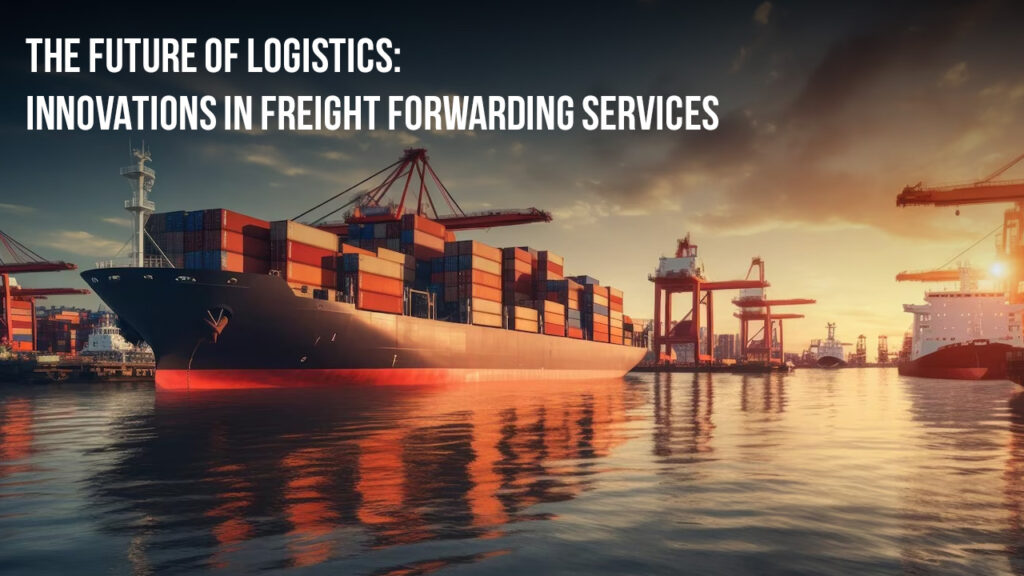In today’s fast-paced global economy, the future of logistics is undergoing a transformative shift. Freight forwarding services play a pivotal role in ensuring seamless transportation of goods across borders. As we look ahead, the industry is set to embrace unprecedented innovations that will redefine efficiency, reliability, and sustainability.
Sustainable Shipping Practices
In the ever-evolving landscape of logistics, sustainability has emerged as a critical factor. Eco-friendly shipping practices are becoming a cornerstone of freight forwarding services, addressing environmental concerns and meeting consumer demands for responsible supply chain management. Companies are increasingly adopting electric and hybrid vehicles, optimizing routes to minimize carbon footprint, and exploring alternative fuels to power their fleets.
Technological Advancements in Tracking and Visibility
The integration of cutting-edge technologies is revolutionizing how businesses manage their supply chains. Advanced tracking and visibility solutions provide real-time insights into the movement of goods, enhancing transparency and reducing the risk of delays. RFID (Radio-Frequency Identification) and IoT (Internet of Things) devices are being employed to monitor shipments at every stage, offering unparalleled control and visibility.
Artificial Intelligence in Route Optimization
In the quest for efficiency, artificial intelligence (AI) is playing a pivotal role in optimizing freight routes. AI-powered route optimization algorithms analyze historical data, weather patterns, traffic conditions, and other variables to determine the most efficient and cost-effective routes. This not only reduces delivery times but also minimizes fuel consumption, contributing to overall sustainability.
Blockchain Revolutionizing Supply Chain Integrity
The advent of blockchain technology is ushering in a new era of transparency and security in logistics. Blockchain in supply chain management ensures the integrity of information, reducing the risk of fraud and errors. Smart contracts enable automated execution of agreements, streamlining processes and enhancing trust among stakeholders in the freight forwarding ecosystem.
Automated Warehousing and Robotics
Warehousing is a crucial component of logistics, and automation is reshaping how it operates. Automated warehousing systems and robotics are increasing efficiency in inventory management and order fulfillment. Automated guided vehicles (AGVs) and robotic arms are handling tasks with precision, reducing operational costs and ensuring faster processing times.
Global Trade Management Platforms
The complexities of global trade require sophisticated solutions. Global trade management platforms are becoming indispensable for freight forwarders, providing a centralized hub for managing documentation, compliance, and regulatory requirements. These platforms streamline processes, mitigate risks, and facilitate smoother cross-border transactions.
E-commerce Integration for Seamless Deliveries
The rise of e-commerce has significantly impacted the logistics industry. Freight forwarding services are now adapting to the demands of online retail by integrating seamlessly with e-commerce platforms. E-commerce integration ensures efficient order processing, real-time tracking, and timely deliveries, meeting the expectations of the modern consumer.
Embracing 5G Connectivity for Real-Time Communication
As the world embraces 5G connectivity, the logistics industry stands to benefit from faster and more reliable communication. 5G technology in logistics enables real-time data exchange, enhancing communication between freight forwarders, carriers, and other stakeholders. This leads to quicker decision-making, reduced response times, and an overall improvement in the efficiency of logistics operations.
Conclusion
The future of logistics is evolving at a rapid pace, driven by technological advancements, sustainability initiatives, and the changing dynamics of global trade. Freight forwarding services are at the forefront of this transformation, adopting innovations that redefine efficiency, visibility, and sustainability. As businesses navigate the complexities of supply chain management, embracing these advancements will be key to staying competitive in the ever-changing landscape of logistics.

